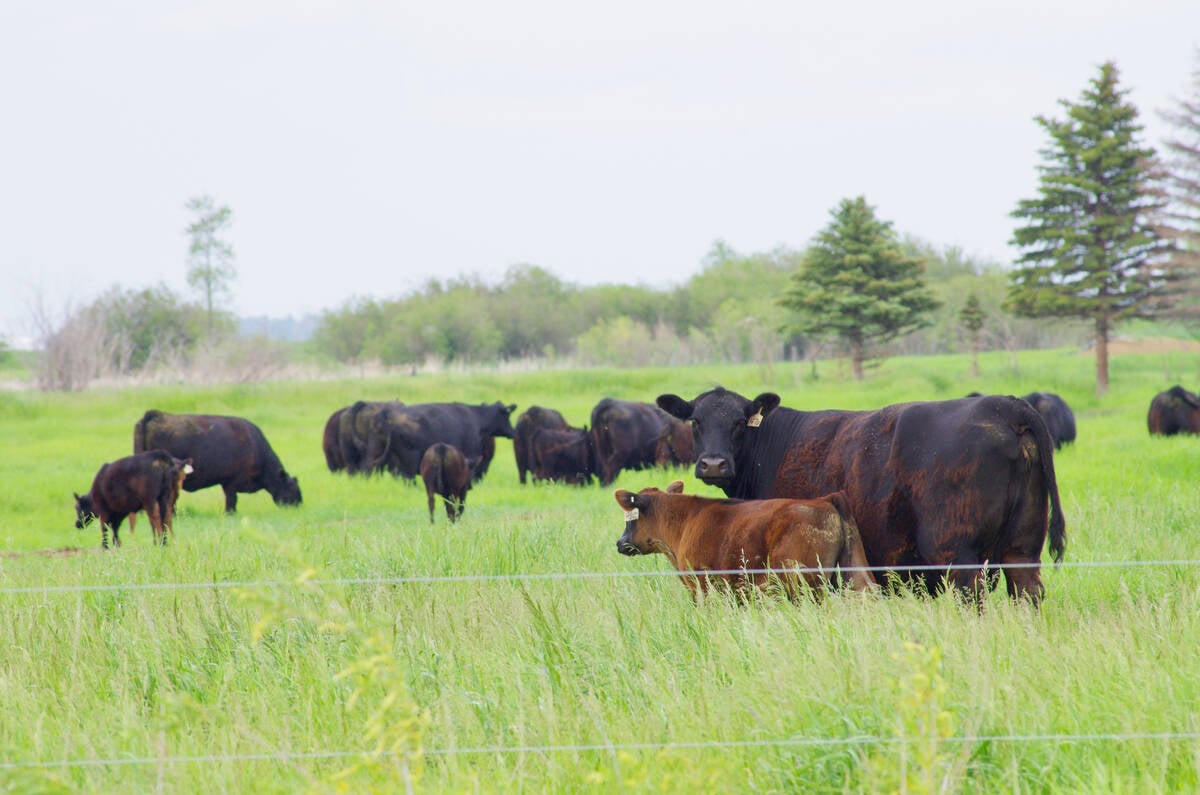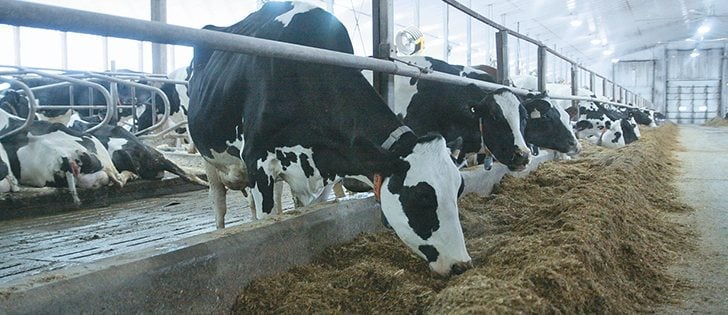Health benefits from feeding product to livestock abound on the internet, but animal health experts say nothing is proven
Treating cattle with apple cider vinegar is the equivalent of wearing a magnetic bracelet, says a University of Saskatchewan veterinarian.
It does no harm, but it won’t do any good.
Dozens of websites claim apple cider vinegar is a wonder product, which offers a long list of nutritional and therapeutic benefits. For example, www.vinegarguys.com says adding apple cider vinegar to livestock’s water supply will:
- Increase rate of gain.
- Prevent scours.
- Prevent and eliminate all forms of internal and external parasites.
- Boost immunity and disease resistance.
- Is a rich source of potassium, which helps cattle build strength and fight off bacteria.
- May improve the texture and flavour of meat.
Read Also

Tick research from the University of Manitoba focuses on insects and testing
Manitoba researchers are looking into the effects of tick and fly disease in cattle.
Chris Clark, a large animal internal medicine specialist at the University of Saskatchewan’s Western College of Veterinary Medicine, said the claims are interesting, but lack scientific evidence.
“I did a fairly extensive search, looking for stuff, and I can’t find anything in the published literature.”
Clark said apple cider vinegar has supporters in New Zealand and Australia, but he hasn’t heard much about its use in Western Canada.
“The organic kind of guys are the drivers of this,” Clark said.
“The organic people have a specific issue… They’re trying to avoid using these products so they’re always looking for an alternative.”
Proponents say apple cider vinegar works by increasing the amount of acetic acid in the rumen, which enhances nutritional uptake and bolsters the immune system for sheep and cattle.
Tim McAllister, a ruminant nutrition specialist with Agriculture Canada in Lethbridge, said the theory is flawed because ruminants don’t need additional acid.
“I would question that (concept) because there’s already a lot of acetic acid produced in the rumen.”
Clark agreed, explaining that acetic acid is produced through fermentation in the rumen.
“You’re adding something that’s already there.”
John Vanleeuwen, a veterinarian and ruminant health management expert at the University of Prince Edward Island, said there is anecdotal evidence around apple cider vinegar but veterinarians rely on science rather than stories.
“I don’t know much about organic treatments for cattle because there is usually very little scientific evidence that they work,” he said.
“At vet school we try to impress upon the students the importance of evidence-based medicine, as much as possible.”
Clark said the nutritional claims regarding potassium are puzzling. Apple cider vinegar may contain potassium but ruminants eat plants.
“The first line in anybody’s discussion of feeding apple cider vinegar is that it’s high in potassium,” he said.
“Cattle rations are high in potassium. Any plant material is incredibly high in potassium.”
While he remains skeptical, Clark said there is one potential nutritional benefit from apple cider vinegar. Adding it to a tank of water might reduce the amount of algae in the water and improve the taste, which could increase water consumption.
Websites promoting apple cider vinegar also say it can prevent or cure nearly every livestock malady, including scours, pink eye, parasites, mastitis and retained placenta.
Clark said broad spectrum health claims, both in human and animal medicine, are usually a massive, red flag.
“When you look at those websites, it would appear that apple cider vinegar can cure every disease that cattle get, which always makes me slightly dubious.”
Clark said it’s difficult to comprehend how apple cider vinegar could control internal parasites. Some websites recommend dosages of three to six ounces per day per animal. Clark said that’s nothing for a 1,300 lb. animal.
“The dilution effect when it hits the rumen, for it to have that kind of effect on internal parasites, I find it questionable.”
He said entrepreneurs who tout and sell apple cider vinegar could do a simple, two-step experiment to test parasite control:
- Collect fecal samples and determine how many parasite eggs are in the feces.
- Treat with apple cider vinegar, wait 10 days and check the feces again for parasite eggs.
“When we’re talking about … the commercially available de-wormers, that should drop the number of eggs in the feces by greater than 90 percent,” Clark said.
“That’s what we consider to be effective treatment.”
Farmers often defend using alternative treatments by pointing out that it won’t do any harm.
Clark agreed that apple cider vinegar would not harm sheep or cattle, but choosing to use it instead of a scientifically proven product can have deadly consequences.
“Parasites are a significant metabolic drain on animals,” he said.
“With the small ruminants … the consequences of extreme intestinal parasites can be fatal.”
robert.arnason@producer.com


















